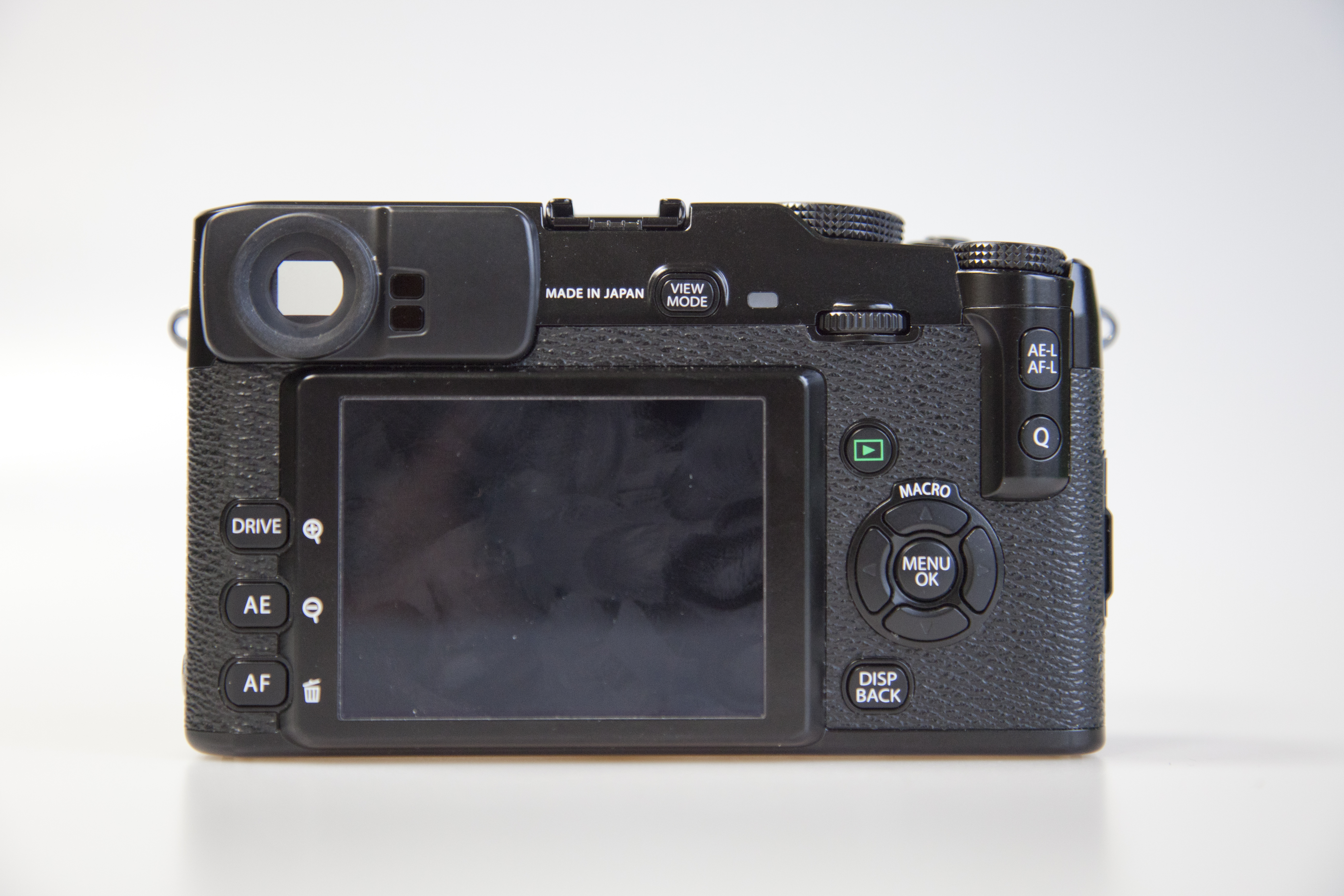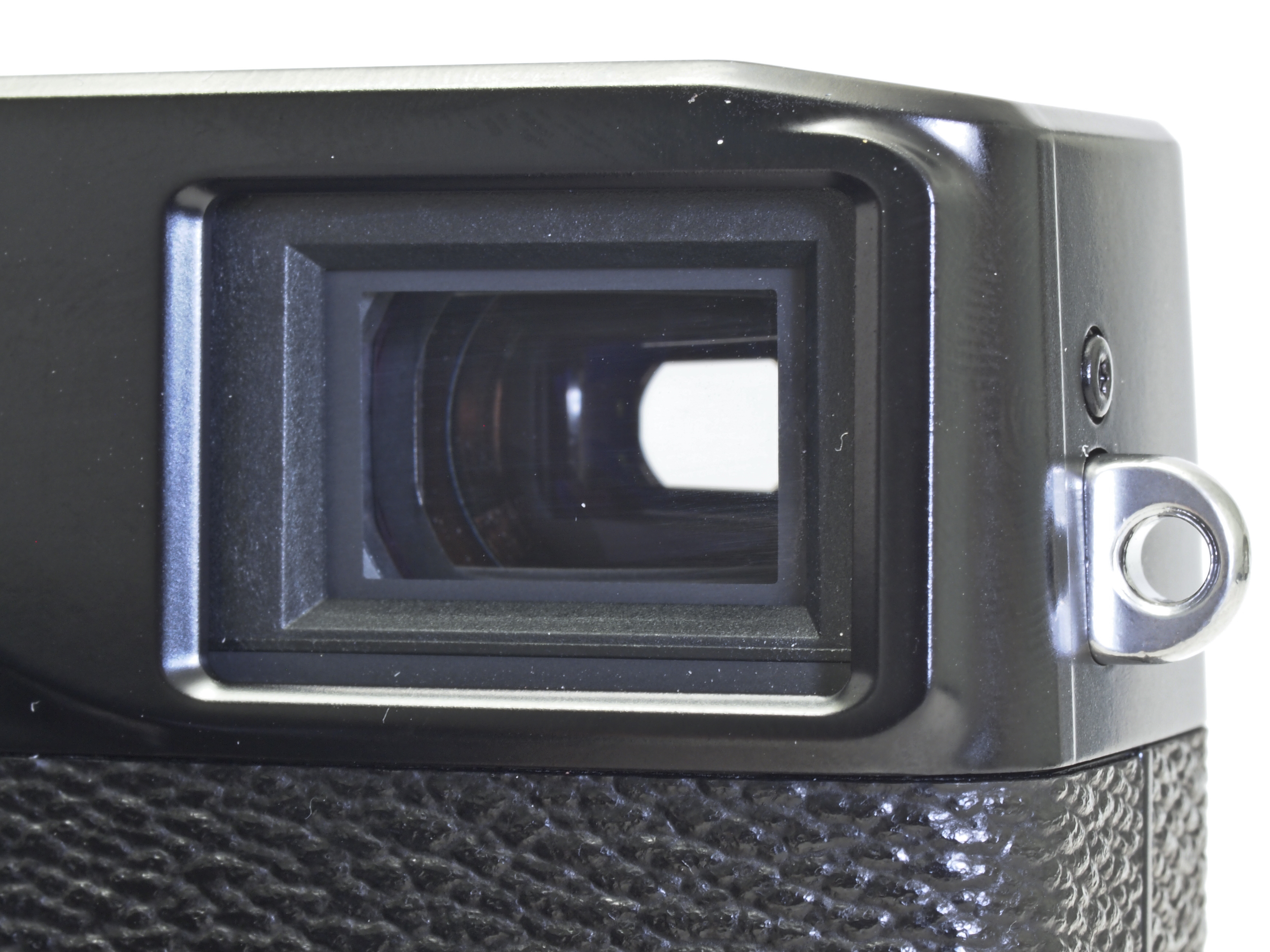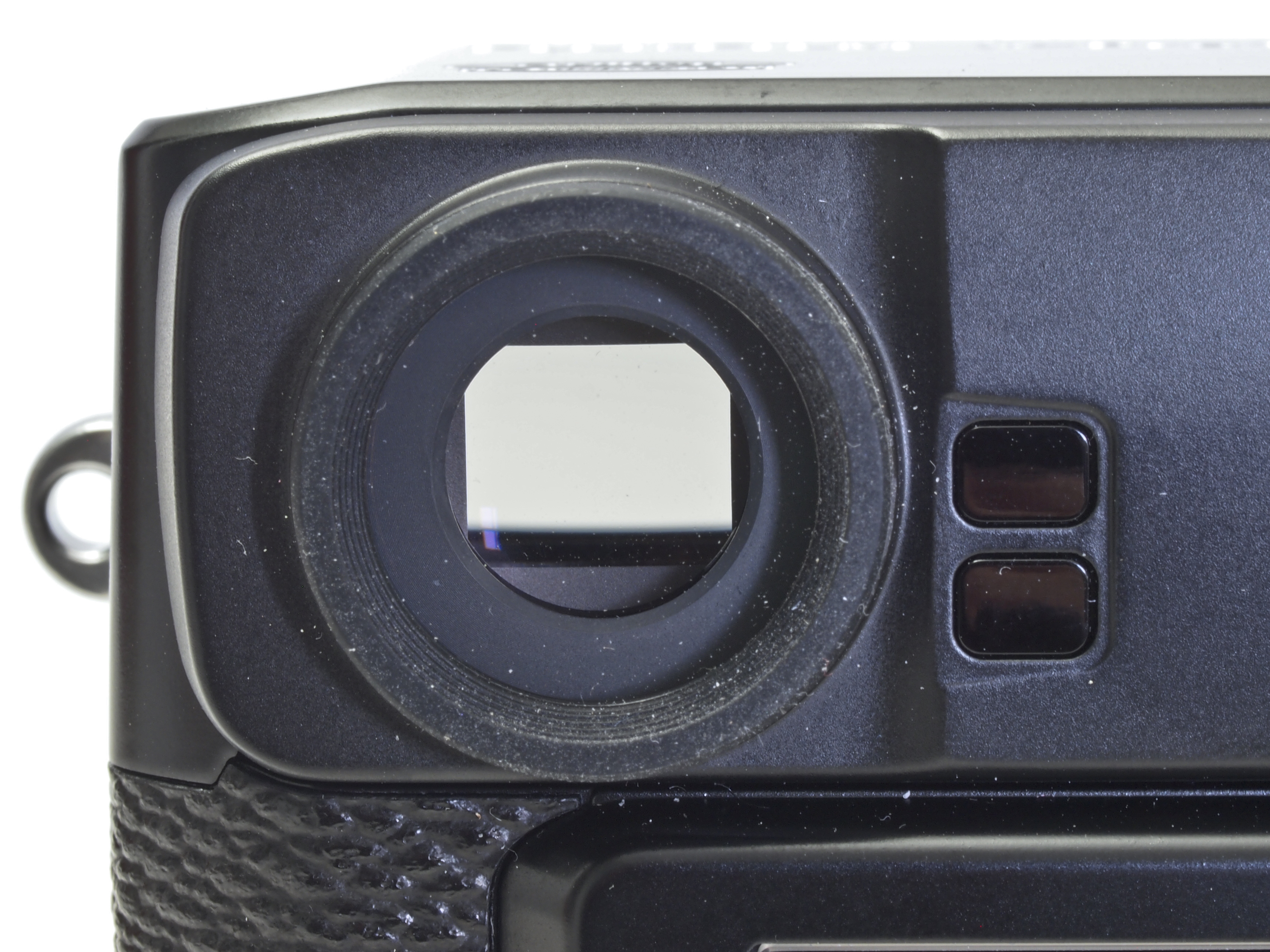Why you can trust TechRadar

Fuji first introduced the concept of a hybrid viewfinder that combines an electronic and an optical viewfinder with the X100, and it has managed to develop a similar finder for the X-Pro1 that can cope with interchangeable lenses.
While it is possible to look through the optical viewfinder (OVF) without seeing any shooting information, it is better to use it with the information view enabled so that the electronic bright frame, which shows the imaging area, is visible.
It is also possible to see the active AF point (with parallax correction) and the virtual horizon.

Although the Reverse Galilean optical viewfinder has a magnifying lens that slips into place when required, Fuji recommends that the EVF is used with the zoom lenses and longer telephoto lens that it intends to introduce in the future.
This is because the imaging area becomes an increasingly smaller proportion of the optical viewfinder image as the lens focal length increases. The EVF, on the other hand, shows the view through the lens so it indicates the framing more clearly.
With 1.44 million dots, the Fuji X-Pro1's EVF doesn't have the resolution of the units in the Sony Alpha A77 or Sony NEX-7, but it nevertheless offers a clear, smooth view.

Because the same data is visible in the OVF as the EVF, it's sometimes only possible to work out which is being used by flicking the selection lever. Generally, however, the EVF is brighter and more contrasty than the OVF. Although the brightness of the main LCD can be adjusted, the EVF brightness is fixed.
Sign up for breaking news, reviews, opinion, top tech deals, and more.
Images may also be composed on the 3-inch 1,230,000-dot LCD screen. We're told that the LCD has also been improved on the one on the X100 to make it better in sunlight, and our tests bear this out. Even in direct sunlight and at wide viewing angles, the image is still visible.
Given the quality of the EVF, it makes sense to use this in most situations. However, the EVF lacks the clarity of detail that the main LCD has and this makes focusing manually through it a little harder than we would like.
And, since there's an eye sensor that can trigger the camera to switch between the LCD and the viewfinder when the camera is held to the eye, it's feasible to use the viewfinder for shooting and the LCD for menu navigation and setting adjustments.
